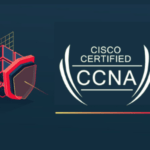Top 12 Cyber Security Courses in Delhi- Craw Security

Top 12 Cyber Security Courses in Delhi- Craw Security
Top 12 Cyber Security Courses in Delhi
Today, everything is based on technology. Whether it be paying your bills or rent, we are dependent on technology only. As our interconnectivity is increasing by using these technologies, so are the chances for the people who want to steal, steal, or disrupt our data. How do we deal with this problem? Simple by learning cybersecurity.
Now, what is cybersecurity?
Devices such as computer systems, mobile, and networking systems, which involve transferring data and the process of securing this data and devices from theft and malware, are known as cybersecurity.
To get rid of such illegal hackers or bad people, the demand for professionals who are good at handling these situations i.e., cybersecurity professionals, is increasing in the whole world.
But today, where getting a job is a very difficult task, we need to have some extra skills as well. To become a cybersecurity professional here are the twelve best cybersecurity certifications which will help you to stand out from the crowd.
Cybersecurity certification helps you to strengthen your resume and thrive on your skills to fetch your dream job.
Top Best 12 Cyber Security Courses in Delhi
1. Ethical Hacking Course
Ethical hacking is a legal way of hacking systems. Companies hire cybersecurity professionals to test system protection, identify threats, and provide solutions on how to strengthen or improve firewalls.
In this ethical hacking CEH program, you will learn how to hack system passwords, mobile hacking, web hacking, etc. In short, you will become a legal hacker with cybersecurity Training provided by Craw Security
The cybersecurity course is an intermediary-level course that will be taught in online mode.
- Course Duration: 40 Hours
- Course Level: Intermediate
- Language: Hindi English
- Course Delivery: Online, offline
- Include: International Certificate
- Accreditation with: EC – Council
Table Form:
| Module | Topic |
|---|---|
| Module 01 | Introduction to Basics of Ethical Hacking |
| Module 02 | Foot-printing Active (Tool-Based Practical) |
| Module 03 | Foot-printing Passive (Passive Approach) |
| Module 04 | In-depth Network Scanning |
| Module 05 | Enumeration User Identification |
| Module 06 | System Hacking Password Cracking & Bypassing |
| Module 07 | Viruses and Worms |
| Module 08 | Trojan and Back door |
| Module 09 | Bots and Botnets |
| Module 10 | Sniffers MITM with Kali |
| Module 11 | Sniffers MITM with Windows |
| Module 12 | Social Engineering Techniques Theoretical Approach |
| Module 13 | Social Engineering Toolkit Practical Based Approach |
| Module 14 | Denial of Service (DOS) & DDOS Attacks |
| Module 15 | Web Session Hijacking |
| Module 16 | SQL Injection Manual Testing |
| Module 17 | SQL Injection Automated Tool-Based Testing |
| Module 18 | Basics of Web App Security |
| Module 19 | Hacking Web servers Server Rooting |
| Module 20 | Hacking Wireless Networks Manual CLI Based |
| Module 21 | Hacking Wireless Network |
| Module 22 | Evading IDS, Firewall |
| Module 23 | Honey pots |
| Module 24 | Buffer Overflow |
| Module 25 | Cryptography |
| Module 26 | Penetration Testing: Basics |
| Module 27 | Mobile Hacking |
| Module 28 | Internet of Things (IoT) Hacking |
| Module 29 | Cloud Security and many more |
2. Certified Hacking Forensic Investigation
This is the process of detecting hacking attacks and extracting the pieces of evidence related to cybercrime. There is a lot of demand for this cybersecurity certification in both government and private sectors for this kind of cybersecurity professionals.
You will get to learn to investigate email crimes understand hard disk and file systems, data duplications, etc., with a cybersecurity course.
The cybersecurity certification course is an intermediary-level course that will be taught in online mode.
- Course Duration: 40 Hours
- Course Level: Intermediate
- Language: Hindi English
- Course Delivery: Classroom Training
- Include: International Certificate
| Module | Topic |
|---|---|
| Module 01 | Computer Forensics in Today’s World |
| Module 02 | Computer Forensics Investigation Process |
| Module 03 | Understanding Hard Disks and File Systems |
| Module 04 | Data Acquisition and Duplication |
| Module 05 | Defeating Anti-Forensics Techniques |
| Module 06 | Windows Forensics |
| Module 07 | Linux and Mac Forensics |
| Module 08 | Network Forensics |
| Module 09 | Investigating Web Attacks |
| Module 10 | Dark Web Forensics |
| Module 11 | Database Forensics |
| Module 12 | Cloud Forensics |
| Module 13 | Investigating Email Crimes |
| Module 14 | Malware Forensics |
| Module 15 | Mobile Forensics |
| Module 16 | IoT Forensics |
3. Networking Associate Certification
The main responsibility of network associates is to take care of networking equipment such as routers, switches, bridges, etc. You should also have an understanding of networking design.
You will gain knowledge about routing, network address, etc., and a cybersecurity certification from craw security
- Course Duration: 40 Hours
- Course Level: Intermediate
- Language: Hindi, English
- Course Delivery: Online, offline
- Include: International Certificate
| Module | Topic |
|---|---|
| Module 01 | Network Attacks and Defense Strategies |
| Module 02 | Administrative Network Security |
| Module 03 | Technical Network Security |
| Module 04 | Network Perimeter Security |
| Module 05 | Endpoint Security-Windows Systems |
| Module 06 | Endpoint Security-Linux Systems |
| Module 07 | Endpoint Security- Mobile Devices |
| Module 08 | Endpoint Security-IoT Devices |
| Module 09 | Administrative Application Security |
| Module 10 | Data Security |
| Module 11 | Enterprise Virtual Network Security |
| Module 12 | Enterprise Cloud Network Security |
| Module 13 | Enterprise Wireless Network Security |
| Module 14 | Network Traffic Monitoring and Analysis |
| Module 15 | Network Logs Monitoring and Analysis |
| Module 16 | Incident Response and Forensic Investigation |
| Module 17 | Business Continuity and Disaster Recovery |
| Module 18 | Risk Anticipation with Risk Management |
| Module 19 | Threat Assessment with Attack Surface Analysis |
| Module 20 | Threat Prediction with Cyber Threat Intelligence |
4. Python Training
Python is nothing but a programming language that is used for machine learning, AI, web development, etc. There is a huge demand for cybersecurity professionals who are experts in Python and web design.
In this, you will get to learn about Python history, interaction networks, and cybersecurity Training from craw Security Delhi
- Course Duration: 40 Hours
- Course Level: Intermediate
- Language: Hindi English
- Course Delivery: Classroom Training
- Include: International Certificate
| Module | Topic |
|---|---|
| Module 01 | Python – An Introduction Special Elements Used in an OS Command |
| Module 02 | Comparisons of Python with Other Language |
| Module 03 | Python Variables & Data Types |
| Module 04 | Operators |
| Module 05 | Python Conditional Statements |
| Module 06 | Python Looping Concept |
| Module 07 | Python Control Statements |
| Module 08 | Python Data Type Casting |
| Module 09 | Python Number |
| Module 10 | Python String |
| Module 11 | Python List |
| Module 12 | Python Tuple |
| Module 13 | Python Dictionary |
| Module 14 | Python Array |
| Module 15 | Python Date & Time |
| Module 16 | File Handling (Input / Output) |
| Module 17 | Multithreading |
| Module 18 | Python Mail Sending Program |
| Module 19 | Database Connection |
| Module 20 | OOPs Concepts |
| Module 21 | Interacting with Networks |
| Module 22 | Graphical User Interface |
| Module 23 | Python Web Scraping |
| Module 24 | Python for Image Processing |
| Module 25 | Python Data Science |
| Module 26 | Intro with Python Machine Learning |
| Module 27 | Intro with Python Artificial Intelligence |
| Module 28 | Functions |
5. Penetration Testing
The process of testing computer networks to find security threats before they are vengefully utilized is called penetration testing. This cybersecurity profession is also highly demanding.
This course teaches you how to perform an effective penetration test and defend against threats. You will also get a cybersecurity from craw security
- Course Duration: 40 Hours
- Course Level: Intermediate
- Language: Hindi English
- Course Delivery: Classroom Training
- Include: International Certificate
Certainly! Here’s the list of modules converted into table form:
| Module | Topic |
|---|---|
| Module 01 | Introduction |
| Module 02 | In-Depth Scanning |
| Module 03 | Exploitation |
| Module 04 | Command Line Fun |
| Module 05 | Getting Comfortable with Kali Linux |
| Module 06 | Bash Scripting |
| Module 07 | Practical Tools |
| Module 08 | Active Information Gathering |
| Module 09 | Passive Information Gathering |
| Module 10 | Introduction to Buffer Overflows |
| Module 11 | Buffer Overflows |
| Module 12 | Fixing Exploits |
| Module 13 | Locating Public Exploits |
| Module 14 | Antivirus Evasion |
| Module 15 | File Transfers |
| Module 16 | Windows Privilege Escalation |
| Module 17 | Linux Privilege Escalation |
| Module 18 | Password Attacks |
| Module 19 | Port Redirection and Tunneling |
| Module 20 | Active Directory Attacks |
| Module 21 | Power Shell Empire |
| Module 22 | Trying Harder: The Labs |
| Module 23 | Penetration Test Breakdown |
6. Certified Threat Intelligence Analyst Course
The information that an organization uses to understand the vulnerabilities that have or are going to target the organization is called threat intelligence. Threat intelligence professionals are in very high demand in these organizations.
In this course, you will gain knowledge of security operations, programming languages, and a cybersecurity certification from CTIA.
- Course Duration: 40 Hours
- Course Level: Intermediate
- Language: Hindi English
- Course Delivery: Classroom Training
- Include: International Certificate
| Module | Topic |
|---|---|
| Module 01 | Introduction to Threat Intelligence |
| Module 02 | Cyber Threats and Kill Chain Methodology |
| Module 03 | Requirements, Planning, Direction, and Review |
| Module 04 | Data Collection and Processing |
| Module 05 | Data Analysis |
| Module 06 | Intelligence Reporting and Dissemination |
| Module 07 | Importance of threat intelligence in risk management, SIEM, and incident response. |
7. CompTIA Security Certification
In this course, a cybersecurity professional gets to learn not only how to detect theft but also how to solve these problems. These types of professionals have a very bright future.
The course provides knowledge about how to use dynamic tools and techniques and implement solutions to these problems. With a cybersecurity course provided by craw security
- Course Duration: 40 Hours
- Course Level: Intermediate
- Language: Hindi English
- Course Delivery: Online Training
- Include: Training Certificate
| Module | Topic |
|---|---|
| MODULE 01 | Configure and apply BIOS Settings |
| MODULE 02 | Differentiate Between Motherboards |
| MODULE 03 | Compare and Contrast RAM |
| MODULE 04 | Install and Configure Expansion Cards |
| MODULE 05 | Install and Configure Storage Devices |
| MODULE 06 | Differentiate CPU Types |
| MODULE 07 | Compare Connection Interfaces |
| MODULE 08 | Install Appropriate Power Supply |
| MODULE 09 | Custom Configurations |
| MODULE 10 | Evaluate Display Devices |
| MODULE 11 | Identify Connectors & Cables |
| MODULE 12 | Install Peripheral Devices |
| MODULE 13 | Network Cables and Connectors |
| MODULE 14 | Characteristics of Connectors / Cables |
| MODULE 15 | TCP/IP |
| MODULE 16 | Common TCP and UDP |
| MODULE 17 | Wireless Standards / Encryption |
| MODULE 18 | Install and Configure a SOHO Router |
| MODULE 19 | Internet Connection Types / Features |
| MODULE 20 | Identify Network Types |
| MODULE 21 | Compare Network Devices |
| MODULE 22 | Use Appropriate Networking Tools |
| MODULE 23 | Laptop Hardware and Components |
| MODULE 24 | Compare Laptop Display Types |
| MODULE 25 | Compare Laptop Features |
| MODULE 26 | Printer Imaging Processes |
| MODULE 27 | Install / Configure Printers |
| MODULE 28 | Printer Maintenance |
| MODULE 29 | Appropriate Safety Procedures |
| MODULE 30 | Environmental Impacts / Controls |
| MODULE 31 | Communication & Professionalism |
| MODULE 32 | Dealing with Prohibited Content |
8. Red Hat Certification
This is one of the most demanding cybersecurity certifications. This certificate is used for the Linux system administrator. To get certified, you have to clear a test. This test isn’t about writing on paper it is a live test in which tasks are given to the candidate, and he/she has to perform these tasks. The Linux admins will grade you based on your performance, and if you pass, you will get your cybersecurity course.
- Course Duration: 40 Hours
- Course Level: Intermediate
- Language: Hindi English
- Course Delivery: Classroom Training
- Include: Certificate
RH124: Red Hat Certified System Administrator Course Content
| Module | Topic |
|---|---|
| Module 1 | Get Started with Red Hat Enterprise Linux |
| Module 2 | Access the Command Line |
| Module 3 | Manage Files From the Command Line |
| Module 4 | Get Help in Red Hat Enterprise Linux |
| Module 5 | Create, View, and Edit Text Files |
| Module 6 | Manage Local Users and Groups |
| Module 7 | Control Access to Files |
| Module 8 | Monitor and Manage Linux Processes |
| Module 9 | Control Services and Daemons |
| Module 10 | Configure and Secure SSH |
| Module 11 | Analyze and Store Logs |
| Module 12 | Manage Networking |
| Module 13 | Archive and Transfer Files |
| Module 14 | Install and Update Software Packages |
| Module 15 | Access Linux File Systems |
| Module 16 | Analyze Servers and Get Support |
| Module 17 | Comprehensive Review |
RH134: Red Hat Certified System Administrator Course Content (Part 2)
| Module | Topic |
|---|---|
| Module 1 | Improve Command Line Productivity |
| Module 2 | Schedule Future Tasks |
| Module 3 | Tune System Performance |
| Module 4 | Manage SELinux Security |
| Module 5 | Manage Basic Storage |
| Module 6 | Manage Storage Stack |
| Module 7 | Access Network-Attached Storage |
| Module 8 | Control the Boot Processes |
| Module 9 | Manage Network Security |
| Module 10 | Install Red Hat Enterprise Linux |
| Module 11 | Run Containers |
| Module 12 | Comprehensive Review |
9. Mobile Application Security Course
As the name itself suggests, this mobile application security mainly focuses on the protection of mobile applications from data theft and larceny.
Mobile application specialties are in great demand today. Those who have this cybersecurity certification on their resume have an exceptional career ahead. Those who are security-minded should grab the opportunity to get this cybersecurity Course.
- Course Duration: 40 Hours
- Course Level: Intermediate
- Language: Hindi English
- Course Delivery: Classroom Training
- Include: International Certificate
Certainly! Here’s the list of modules converted into a table format:
| Module | Topic |
|---|---|
| Module 01 | Introduction to MPT |
| Module 02 | Lab Setup |
| Module 03 | Android Architecture |
| Module 04 | APK file Structure |
| Module 05 | Reversing App with Apktool |
| Module 06 | Reversing App with MobSf |
| Module 07 | Static Analysis |
| Module 08 | Scanning Vulnerability with Drozer |
| Module 09 | Improper Platform Usage |
| Module 10 | Insecure Data Storage |
| Module 11 | Insecure Communication |
| Module 12 | Insecure Authentication |
| Module 13 | Insufficient Cryptography |
| Module 14 | Insecure Authorization |
| Module 15 | Client Code Quality |
| Module 16 | Code Tampering |
| Module 17 | Reverse Engineering |
| Module 18 | Extraneous Functionality |
| Module 19 | SSL Pinning |
| Module 20 | Intercepting the Network Traffic |
| Module 21 | Dynamic Analysis |
| Module 22 | Report Preparation |
| Module 23 | IOS Penetration: Basics |
10. Artificial Intelligence Training
AI is the replica of human intelligence. In other words, the machines are programmed to work with the thinking of human beings. These machines have their own thinking ability. Artificial intelligence is one of the most demanding cybersecurity certification courses in the IT industry.
Normally, this course is four years for engineers, but those who have this cybersecurity certification will have more chances to boost their resumes.
- Course Duration: 40 Hours
- Course Level: Intermediate
- Language: Hindi English
- Course Delivery: Classroom Training
- Include: International Certificate
Certainly! Here’s the list of modules converted into a table format:
| Module | Topic |
|---|---|
| Module 01 | Introduction to Python |
| Module 02 | Advanced Python |
| Module 03 | Machine Learning |
| Module 04 | Deep Learning |
| Module 05 | Computer Vision |
| Module 06 | Natural Language Processing |
| Module 07 | Neural Networks |
11. Machine Learning With Data Science
Machine learning is nothing but an application of artificial intelligence AI. In this, the machine can learn automatically from the environment and the experiences it had.
These cybersecurity certification holders are highly in demand by organizations as today; everyone needs vastly intelligent machines.
Students who want to have a career in artificial intelligence and machine learning should have this cybersecurity certification to grab high packages.
- Course Duration: 40 Hours
- Course Level: Intermediate
- Language: Hindi English
- Course Delivery: Classroom Training
- Include: International Certificate
Certainly! Here’s the list of modules converted into a table format:
| Module | Topic |
|---|---|
| Module 01 | Machine Learning with Python – Basics |
| Module 02 | Machine Learning with Python – Python Ecosystem |
| Module 03 | Python Machine Learning – Methods for Machine Learning |
| Module 04 | Machine Learning with Python – Data Loading for ML Projects |
| Module 05 | Machine Learning with Python – Understanding Data with Statistics |
| Module 06 | Machine Learning with Python – Understanding Data with Visualization |
| Module 07 | Machine Learning with Python – Preparing Data |
| Module 08 | Machine Learning with Python – Data Feature Selection |
| Module 09 | Classification – Introduction |
| Module 10 | Classification Algorithms – Logistic Regression |
| Module 11 | Classification Algorithms – Support Vector Machine (SVM) |
| Module 12 | Classification Algorithms – Decision Trees |
| Module 13 | Classification Algorithms – Naïve Bayes |
| Module 14 | Classification Algorithms – Random Forest |
| Module 15 | Regression Algorithms |
| Module 16 | Regression Algorithms – Linear Regression |
| Module 17 | Clustering Algorithms |
| Module 18 | Clustering Algorithms – K-means |
| Module 19 | Clustering Algorithms – Mean Shift Algorithm |
| Module 20 | Clustering Algorithms – Hierarchical Clustering |
| Module 21 | KNN Algorithm – Finding Nearest Neighbors |
| Module 22 | Machine Learning Algorithms – Performance |
| Module 23 | Machine Learning with Pipelines – Automatic Workflows |
| Module 24 | Machine Learning – Improving Performance of ML |
| Module 25 | Machine Learning – Improving Performance of ML Model (Contd…) |
12. Web Application Security Course
Web application security involves detecting the threats to the web applications and removing them. In this, the security system prevents the theft and hacking of the codes and data from web applications.
This is one of the top 10 commonly demanded cybersecurity certifications in the IT industry.
- Course Duration: 40 Hours
- Course Level: Intermediate
- Language: Hindi English
- Course Delivery: Classroom Training
- Include: International Certificate
Certainly! Here’s the list of modules converted into a table format:
| Module | Topic |
|---|---|
| Module 01 | Machine Learning with Python – Basics |
| Module 02 | Machine Learning with Python – Python Ecosystem |
| Module 03 | Python Machine Learning – Methods for Machine Learning |
| Module 04 | Machine Learning with Python – Data Loading for ML Projects |
| Module 05 | Machine Learning with Python – Understanding Data with Statistics |
| Module 06 | Machine Learning with Python – Understanding Data with Visualization |
| Module 07 | Machine Learning with Python – Preparing Data |
| Module 08 | Machine Learning with Python – Data Feature Selection |
| Module 09 | Classification – Introduction |
| Module 10 | Classification Algorithms – Logistic Regression |
| Module 11 | Classification Algorithms – Support Vector Machine (SVM) |
| Module 12 | Classification Algorithms – Decision Trees |
| Module 13 | Classification Algorithms – Naïve Bayes |
| Module 14 | Classification Algorithms – Random Forest |
| Module 15 | Regression Algorithms |
| Module 16 | Regression Algorithms – Linear Regression |
| Module 17 | Clustering Algorithms |
| Module 18 | Clustering Algorithms – K-means |
| Module 19 | Clustering Algorithms – Mean Shift Algorithm |
| Module 20 | Clustering Algorithms – Hierarchical Clustering |
| Module 21 | KNN Algorithm – Finding Nearest Neighbors |
| Module 22 | Machine Learning Algorithms – Performance |
| Module 23 | Machine Learning with Pipelines – Automatic Workflows |
| Module 24 | Machine Learning – Improving Performance of ML |
| Module 25 | Machine Learning – Improving Performance of ML Model (Contd…) |



























